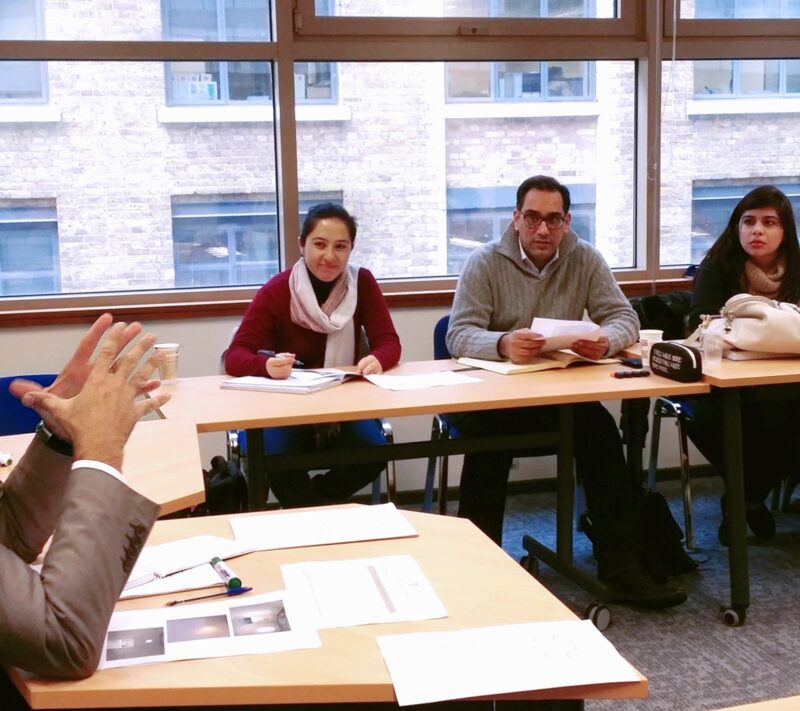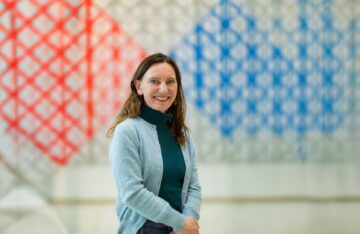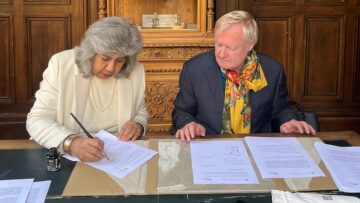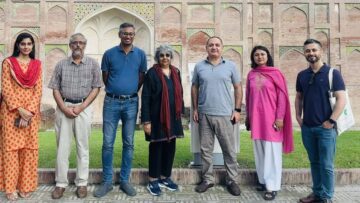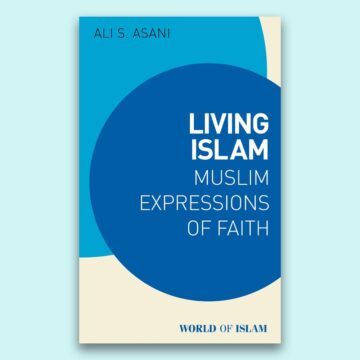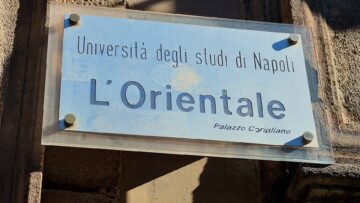This year’s cohort admitted to the Graduate Programme in Islamic Studies and Humanities (GPISH) are the first to follow a new curriculum aimed at further improving the course and the way students develop a discourse based on a civilisational approach to Islam.
Three years ago, the Institute’s Academic Steering Committee initiated the work to devise a programme where Shi‘i and Ismaili traditions were not to be studied at the periphery of ‘mainstream Islam’ but as an integral part of a broader discourse on Islam as a civilisation, within an historical context. This led to a new and more structured GPISH curriculum.
Dr Tullio Lobetti, Special Projects Manager for the Department of Graduate Studies at the IIS, says that the programme has always aimed high, hoping to continually incorporate the tides of change into the curriculum taught to students. “Our sense of responsibility forces us to question yet again which are the best ways to understand and study ‘religion’ in this time and age. For this reason, what was a rather successful curriculum has been rewritten anew to incorporate groundbreaking subjects, intellectual tools and approaches ensuing not only better understanding, but a different way of thinking about the Ismaili tradition, Islam, and religion in more general terms.”
The first year modules in the new curriculum are aimed at developing historical knowledge and consciousness comprising three foundational elements examining the history of Islam in its early, middle, and modern phases. Two further modules, dealing with identity in South-Asian Muslim contexts and with ritual and worship, complement the historical modules with topical subjects. In addition, a two-term analytically-informed module on the Quran provides the necessary familiarity with primary sources that students need to study to tackle the origin and development of Islamic thought and civilisation in an organic manner.
Encouraging the development of a critical way of thinking has always been at the heart of GPISH. The new curriculum builds on this. The second year of the programme comprises an array of broad thematic modules where the students will be able to express themselves and to cultivate more personally-oriented goals.
New faculty members who have been welcomed to teach on the programme include Professor Garth Fowden (Cambridge), Dr Elizabeth Key Fowden (Cambridge) teaching Muslims in History: Late Antiquity; Dr Jan-Peter Hartung (SOAS) teaching Muslims in Antiquity: 1000 – 1750 CE; and Dr Carool Kersten (Kings’s College) teaching Muslims in History: Modern Period. Together with them, IIS’ faculty members, including Dr Omar Ali-de-Unzaga, Professor Ali Asani (Indo-Muslim and Islamic Religion and Cultures), Dr Karen Bauer (Qur’anic Studies; Gender), Dr Stephen Burge (Qur’anic Studies; Devotional Literature), Dr Farhad Daftary (Ismaili Studies), Dr Tullio Lobetti (Philosophy of Religion), Dr Gurdofarid Miskinzoda (Shi‘i Studies and History), and others, will bring the new GPISH curriculum, and its ambitions, to life.
GPISH is continuously evolving to meet contemporary academic standards, providing an all-around academic formation of practical significance. In the future, the Institute aims to shape the structure of GPISH to secure validation of the programme as a formal degree, by a leading UK higher education institution.

